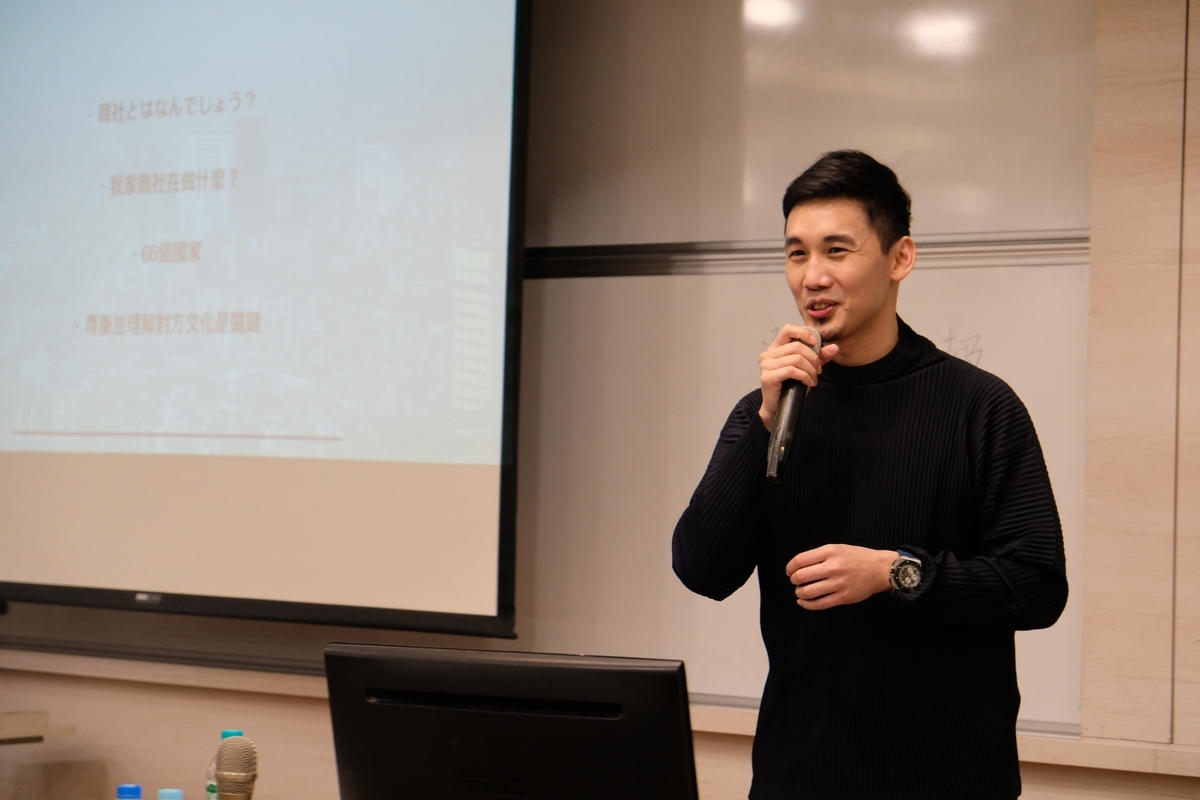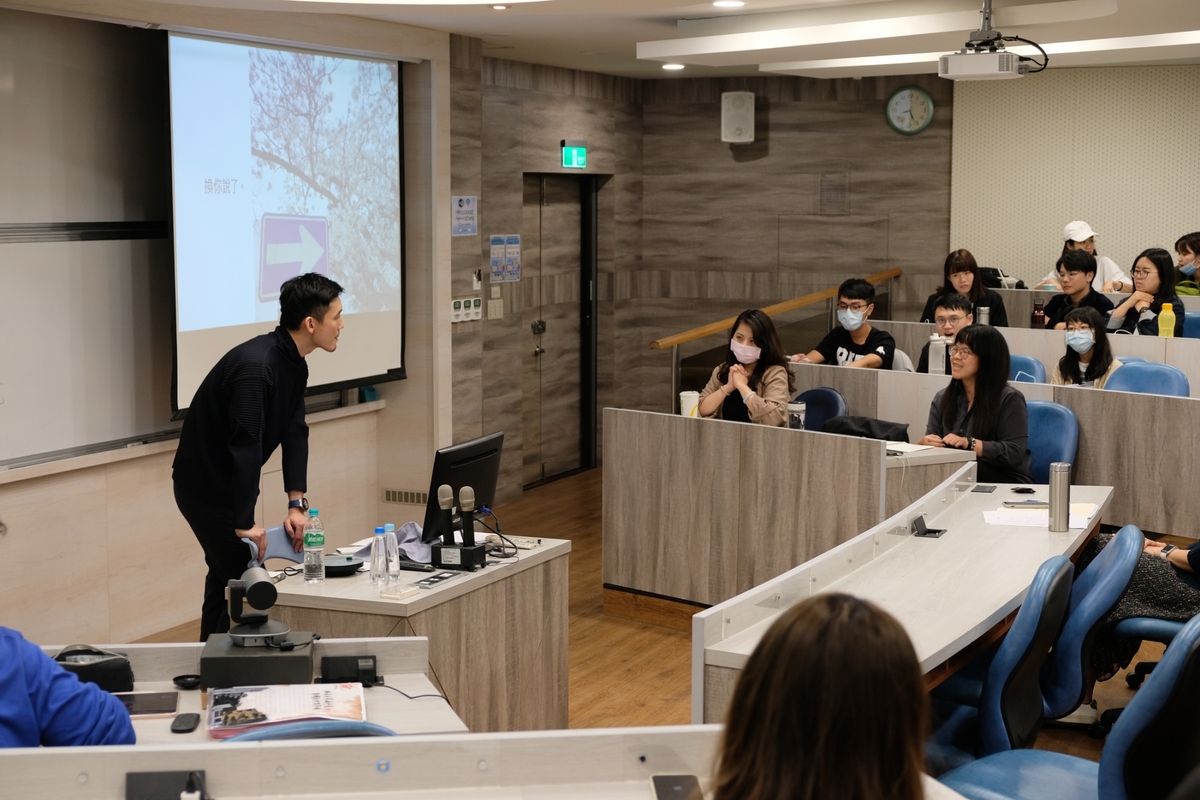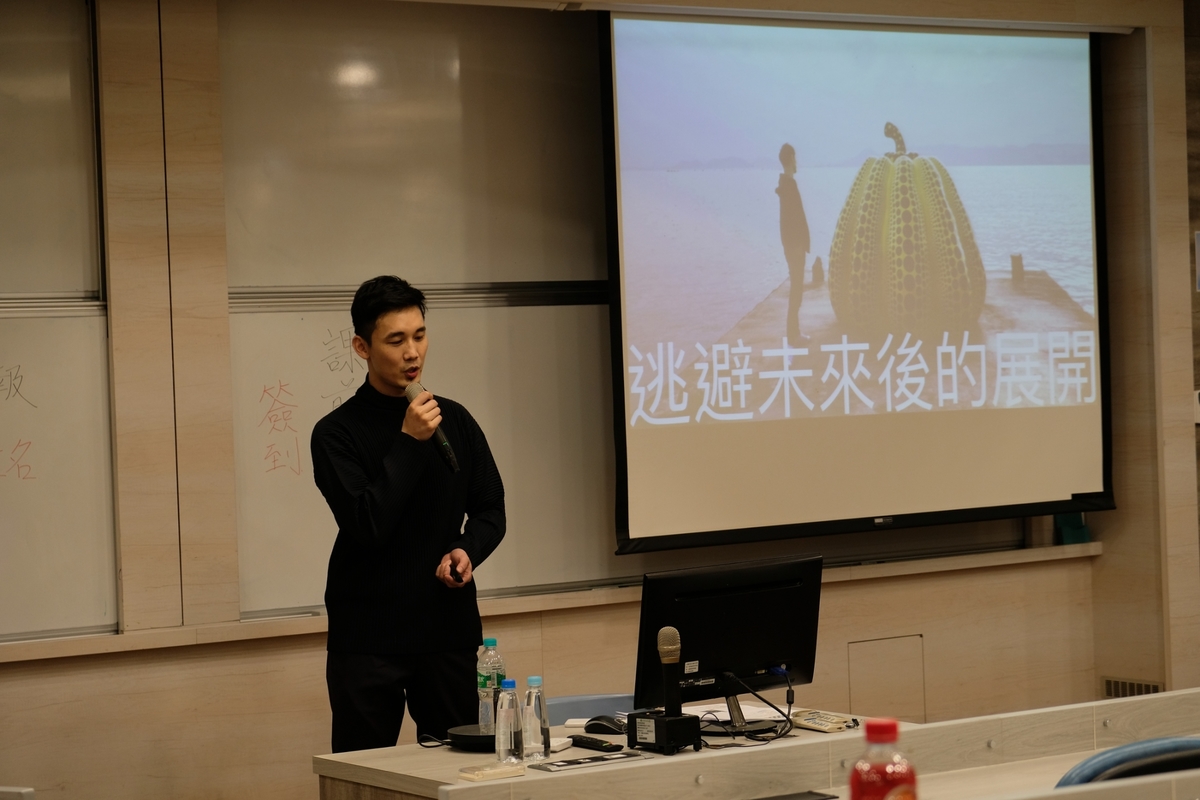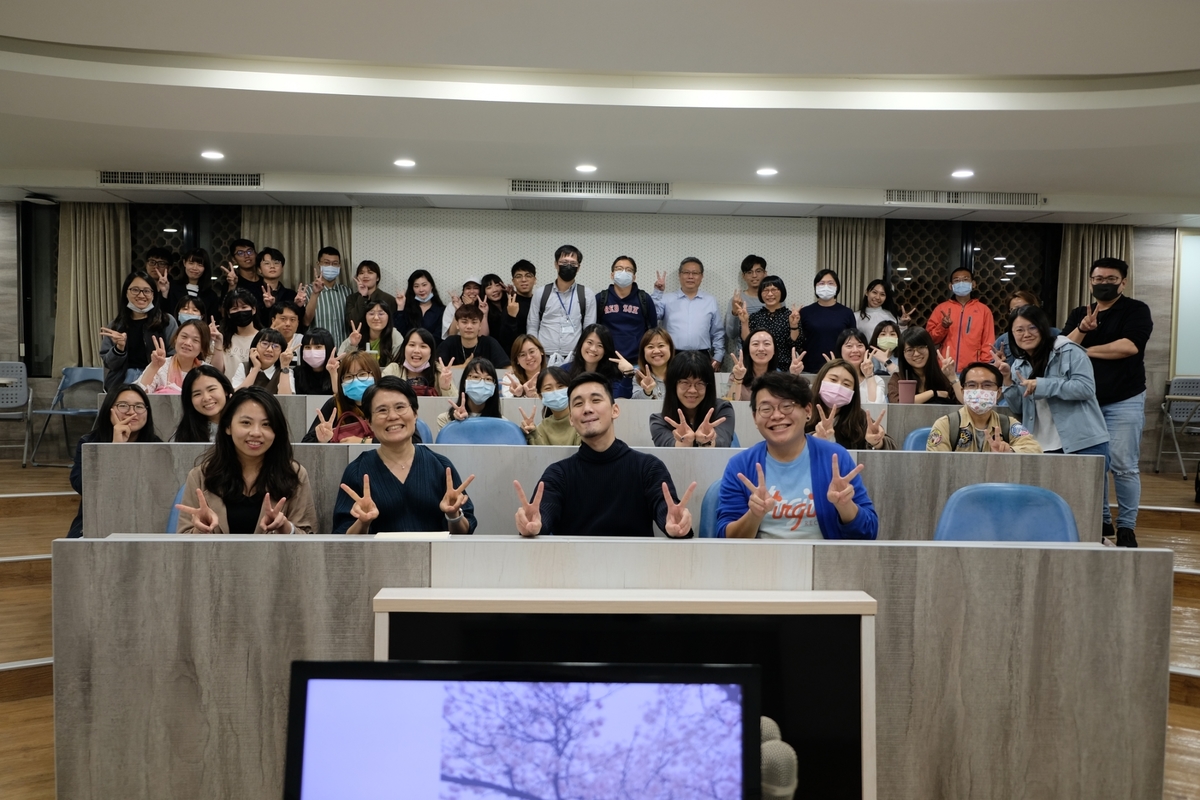Alumnus shares tips for students wanting to pursue a career in Japan




2021-04-14
(Report by student journalist) How to cultivate global-minded talents to thrive in the era of globalization? Alumnus of the Institute of Marketing Communication at NSYSU I-Chia Wang returned to his alma mater to share his ups and downs while working in Japan. Wang pointed out that although Taiwan and Japan both belong to the East Asian region, the lifestyle and corporate culture of the two countries differ significantly. He struggled with culture shock and eventually built his mental strength and became the CEO for the Taiwan region of NASA Corporation. He said that the key to success in the working environment abroad is the sensitivity to cultural differences and adaptability skills.
Wang said that he went to Japan for job hunting right after graduating from the master’s program and experienced culture shock already when attending job interviews. There was one time when the interviewer, upon seeing his resume, asked him: “Why did you study at National Taiwan University (NTU) and actually, what kind of university is NTU? Why did you continue to study a master’s program? Why did you study for so long?” Wang said that at first, this was what shocked him the most in Japan. He discovered that in Japanese culture, companies care about the candidate’s technical expertise much more than about university diplomas. After leaving his comfort zone, Wang was shocked to discover that his master’s degree in Marketing Communication and a diploma from Taiwan’s top university – NTU were no guarantee of success.
There are great differences in lifestyle between Japan and Taiwan. Wang said that the Japanese tend to be very prudent, value time, and don’t allow even minor inaccuracies to happen (employees’ clock-in time is registered in seconds!). In addition to that, because of East Asian cultural influences, the Japanese are accustomed to a roundabout way of communication. Wang recalled one business meeting with overseas contractors he and his supervisors attended. The contractors asked his supervisors if they agree to import goods – a simple yes-no question. The Japanese supervisors did not give a clear answer but instead, rephrased the whole process, the causes and effects. “This roundabout way of speaking can easily lead to the conclusion being missed.”
Another thing is the traditionally strict hierarchy in the Japanese corporate culture. Wang said that position and seniority are the basis for forming hierarchy at work. When starting a new job, new employees make discreet inquiries to check who is their senior. Besides, “the spinach law” also demonstrates the prudence of the Japanese people. When difficulties at work arise, the Japanese follow three steps: “report, inform, consult”, immediately reporting the situation to their superiors. In such a bureaucratic management system, accountability is clear but the whole process can be time-consuming and slow down the company’s response. However, “military-style” management acts as quality control and this is why Japanese companies occupy a solid position in global supply chains.
Having embraced cultural differences between Japan and Taiwan, Wang became the CEO for the Taiwan region. In the company’s strategic management, he sticks to three rules: 1) see your employees as the company’s asset and lifeline, 2) success belongs to the whole team: be fair with rewards and punishments, and 3) keep a healthy cash flow. Wang emphasized that in Taiwan, he experienced a reverse culture shock: people are not as punctual, there is a power imbalance between buyers and sellers and a habit of blaming people before finding out the source of the problem. He hopes to take what’s best from both cultures. Wang believes that one needs to practice being attentive to cultural differences and stay in line with one’s preferences, just like one explores the best views when traveling.
(Edited by Public Affairs Division)
(Report by student journalist) How to cultivate global-minded talents to thrive in the era of globalization? Alumnus of the Institute of Marketing Communication at NSYSU I-Chia Wang returned to his alma mater to share his ups and downs while working in Japan. Wang pointed out that although Taiwan and Japan both belong to the East Asian region, the lifestyle and corporate culture of the two countries differ significantly. He struggled with culture shock and eventually built his mental strength and became the CEO for the Taiwan region of NASA Corporation. He said that the key to success in the working environment abroad is the sensitivity to cultural differences and adaptability skills.
Wang said that he went to Japan for job hunting right after graduating from the master’s program and experienced culture shock already when attending job interviews. There was one time when the interviewer, upon seeing his resume, asked him: “Why did you study at National Taiwan University (NTU) and actually, what kind of university is NTU? Why did you continue to study a master’s program? Why did you study for so long?” Wang said that at first, this was what shocked him the most in Japan. He discovered that in Japanese culture, companies care about the candidate’s technical expertise much more than about university diplomas. After leaving his comfort zone, Wang was shocked to discover that his master’s degree in Marketing Communication and a diploma from Taiwan’s top university – NTU were no guarantee of success.
There are great differences in lifestyle between Japan and Taiwan. Wang said that the Japanese tend to be very prudent, value time, and don’t allow even minor inaccuracies to happen (employees’ clock-in time is registered in seconds!). In addition to that, because of East Asian cultural influences, the Japanese are accustomed to a roundabout way of communication. Wang recalled one business meeting with overseas contractors he and his supervisors attended. The contractors asked his supervisors if they agree to import goods – a simple yes-no question. The Japanese supervisors did not give a clear answer but instead, rephrased the whole process, the causes and effects. “This roundabout way of speaking can easily lead to the conclusion being missed.”
Another thing is the traditionally strict hierarchy in the Japanese corporate culture. Wang said that position and seniority are the basis for forming hierarchy at work. When starting a new job, new employees make discreet inquiries to check who is their senior. Besides, “the spinach law” also demonstrates the prudence of the Japanese people. When difficulties at work arise, the Japanese follow three steps: “report, inform, consult”, immediately reporting the situation to their superiors. In such a bureaucratic management system, accountability is clear but the whole process can be time-consuming and slow down the company’s response. However, “military-style” management acts as quality control and this is why Japanese companies occupy a solid position in global supply chains.
Having embraced cultural differences between Japan and Taiwan, Wang became the CEO for the Taiwan region. In the company’s strategic management, he sticks to three rules: 1) see your employees as the company’s asset and lifeline, 2) success belongs to the whole team: be fair with rewards and punishments, and 3) keep a healthy cash flow. Wang emphasized that in Taiwan, he experienced a reverse culture shock: people are not as punctual, there is a power imbalance between buyers and sellers and a habit of blaming people before finding out the source of the problem. He hopes to take what’s best from both cultures. Wang believes that one needs to practice being attentive to cultural differences and stay in line with one’s preferences, just like one explores the best views when traveling.
(Edited by Public Affairs Division)
Click Num:
Share
